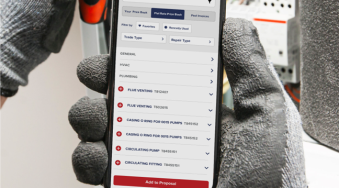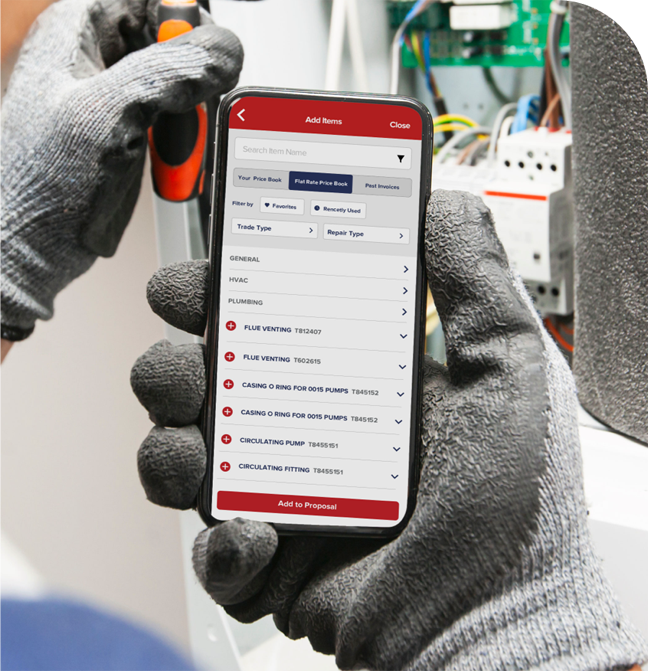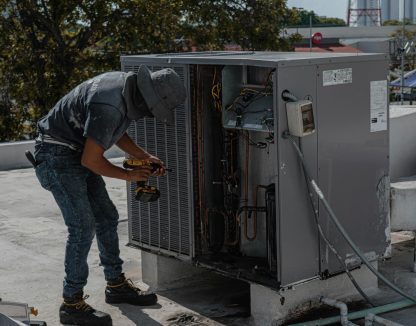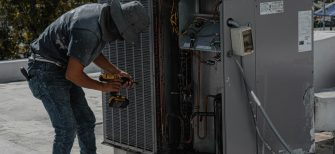Starting your own HVAC business isn’t a walk in the park, but with a solid business plan and the right licenses you can start off on the right foot.
For each service you provide, you’ll need a license in the corresponding area, like plumbing, electrical work, air quality, cooling, and so on. And, you need to be legally licensed to perform that work in any state you will be operating.
HVAC Business Requirements
1. Complete State Exam
State requirements differ, but generally, you’ll need to take a written state exam after applying to obtain your HVAC business license.
This process includes
- Completing the application process
- Obtaining any required signatures and notarizing if necessary
- Submitting all documents and application fees, if any, to the Board’s office
If your application is approved, you will be able to schedule your license exam. Upon completion of the licensing exam, you’ll be notified if you passed. If so, you can then submit a license activation form and registration fee, and receive your license!
2. Types of HVAC Licensing
Depending on your services and the state, you can pursue various HVAC licenses, each with its own starting requirements. The most common are the apprentice, journeyperson, and finally the HVAC contractor.
1. HVAC Journeyperson
An HVAC Journeyperson is a highly trained technician who is qualified for both installing and repairing HVAC systems.
Typical daily tasks involve fixing customer systems, installing new ones, and offering cost-effective heating and cooling options to clients.
2. Contractor License
If you’re looking to be a licensed HVAC technician, you’ll need to complete 3,000 hours (18 months full-time equivalent) of training. To do this, you will need to work under the supervision of an already licensed contractor.
No specific education is needed for a North Carolina HVAC license, but you can count up to 2,000 hours of relevant academic or technical training for half of the total requirement.
Several quality programs provide HVAC training, available both online and in-person, to help prepare individuals for a career in the field.
3. Master HVAC
The highest degree of HVAC (heating, ventilation, and air conditioning) licensure is a Master HVAC license. It usually denotes a high degree of knowledge and experience in the industry. A Master HVAC license holder has proven to have advanced knowledge and abilities in the planning, building, servicing, and maintenance of HVAC systems.
Here are some key points about a Master HVAC license:
- Independence: Holders of a Master HVAC license can work independently without direct supervision.
- Expertise: They have extensive knowledge of HVAC systems, including complex installations and advanced troubleshooting.
- Leadership: Masters may also be qualified to supervise and manage other HVAC technicians or apprentices.
- Code Compliance: They are well-versed in building codes and regulations related to HVAC systems.
- Experience: Achieving a Master HVAC license usually requires a certain amount of hands-on experience and may involve passing a comprehensive exam.
3. HVAC Certifications
It is essential to comprehend the nuances of EPA Section 608 certifications if one wishes to work in the HVAC sector. These qualifications are necessary for all HVAC technicians who handle refrigerants, not only contractors. To shed light on this crucial area of HVAC knowledge, let’s dissect the many varieties.
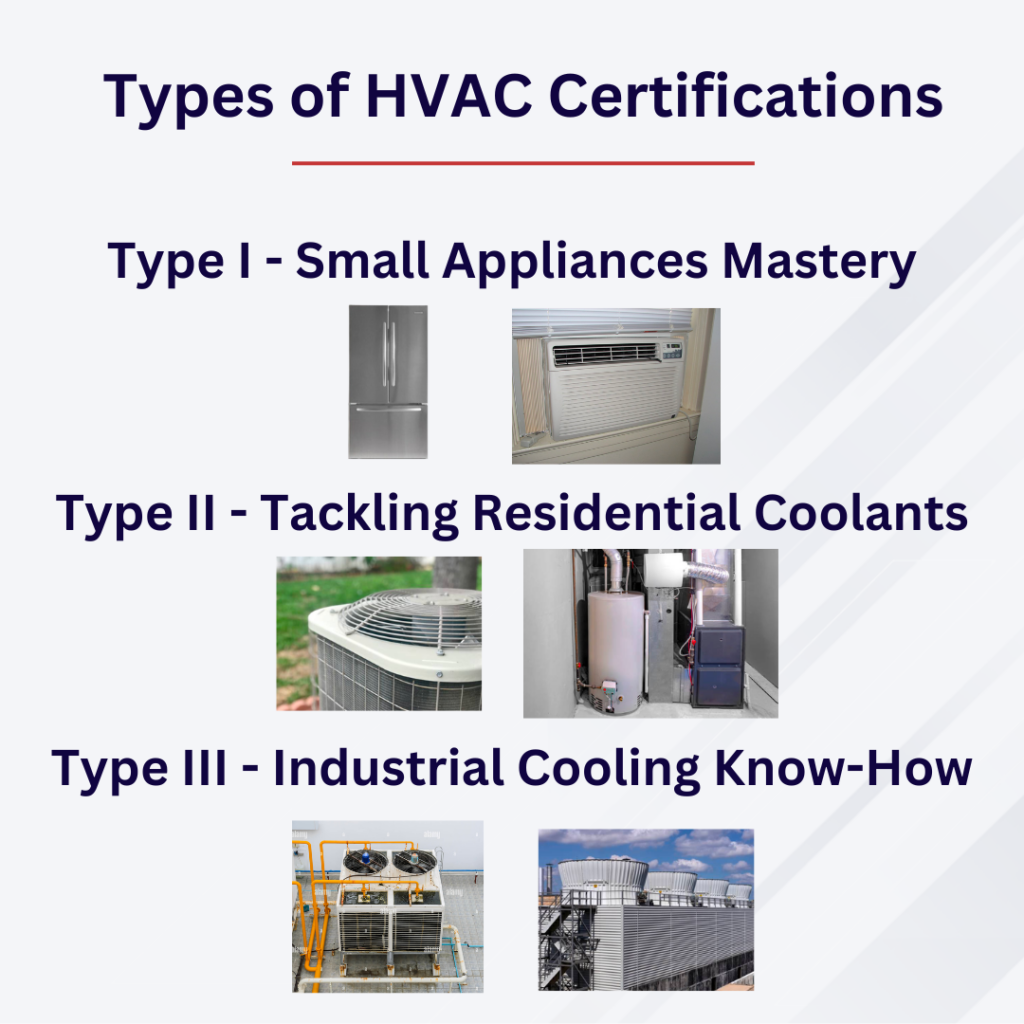
1. Type I Certification: Small Appliances Mastery
The first step towards becoming a small appliance HVAC technician is earning a Type I Certification. Professionals holding this certification are qualified to operate on systems with five pounds or less of refrigerant. Consider everyday household appliances like window air conditioners and refrigerators. It’s the fundamental understanding needed to guarantee the effective and secure operation of these smaller components.
2. Type II Certification: Tackling Residential Coolants
Type II Certification is essential for technicians working on high-pressure and extremely high-pressure systems. Split air conditioning systems are among the household air conditioners that are the focus of this certification. Because they are knowledgeable with the nuances of these systems, technicians with Type II Certification guarantee that cooling solutions in homes function at their best.
3. Type III Certification: Industrial Cooling Know-How
For individuals navigating the world of low-pressure systems, which are frequently found in commercial and industrial settings, Type III Certification is required. The complexity of industrial cooling are understood by specialists with this certification, which covers everything from chillers to other large-scale cooling arrangements. For experts stepping out into the wider field of HVAC systems outside of residential applications, this certificate is crucial.
4. Universal Certification: The All-Inclusive Expertise
The ultimate certification that covers all areas of mastery is the Universal Certification. Holding Type I, Type II, and Type III qualifications, technicians with a Universal Certification are comprehensive specialists. Professionals can handle a wide range of refrigeration systems, from small appliances to high-pressure home units and low-pressure industrial settings, thanks to their comprehensive competence. It is the credential for adaptability in the HVAC industry, offering the abilities required to handle a wide range of difficult tasks.
These EPA Section 608 certificates are more than simply résumé stickers; they are a testament to the breadth of knowledge and proficiency needed in the ever-changing HVAC industry. These certifications set the stage for a fruitful and efficient project, whether you’re overseeing the cooling requirements of a large industrial complex or making sure a home refrigerator operates efficiently.
4. Software and Support
Now that you have your business plan written out, your license secured, and everything is ready to go, you can start your HVAC business.
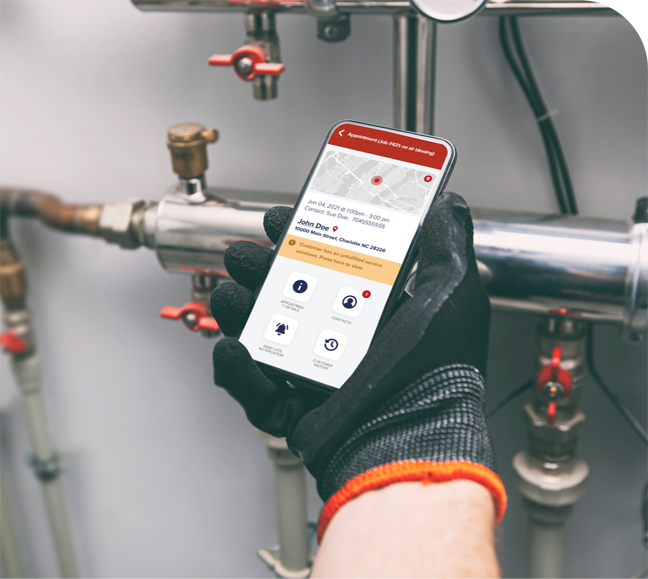
The day-to-day logistics of running an HVAC company can be challenging and time-consuming. That’s why it’s important to have HVAC software, like Payzerware, in place. Payzerware makes it easy to run your HVAC business by saving time in all aspects of your business by streamlining operations, improving collections, and helping you get to more jobs. The all-in-one field management software platform that combines software and support to help you grow your business. Starting your business with HVAC software in place sets you up for greater success, allowing you to streamline your operation from day one, eliminating wasted time and resources.
Partner With Payzer
Payzerware makes reporting more accessible than ever by assessing performance, productivity, and more! With transparent and upfront pricing, we provide insight into different areas of your business, so you can stay on track while growing your HVAC company and reaching your goals.
Talk to a product specialist and see how Payzerware will benefit your business.
HVAC Business Requirements FAQ’s
What are the benefits of getting an HVAC license?
Obtaining an HVAC license offers several benefits, including:
- Legal compliance: Having an HVAC license ensures that you are operating within the bounds of the law. It is illegal to perform HVAC work without the necessary licensing in many places.
- Increased job opportunities: With an HVAC license, you have access to a wider range of job opportunities. Many employers prefer or require licensed technicians, making it easier to find employment.
- Higher earning potential: Licensed HVAC technicians often earn higher salaries than unlicensed individuals. Employers are willing to pay more for the expertise and professionalism of a license.
- Advanced training and knowledge: To obtain an HVAC license, you must undergo rigorous training and pass exams. This process equips you with advanced knowledge and skills in the HVAC field, making you more competent and confident in your work.
- Customer trust: Customers are more likely to trust and hire licensed HVAC technicians because it demonstrates their commitment to professionalism and quality service.
- Ability to start your own business: With an HVAC license, you have the option to start your own HVAC contracting business.
